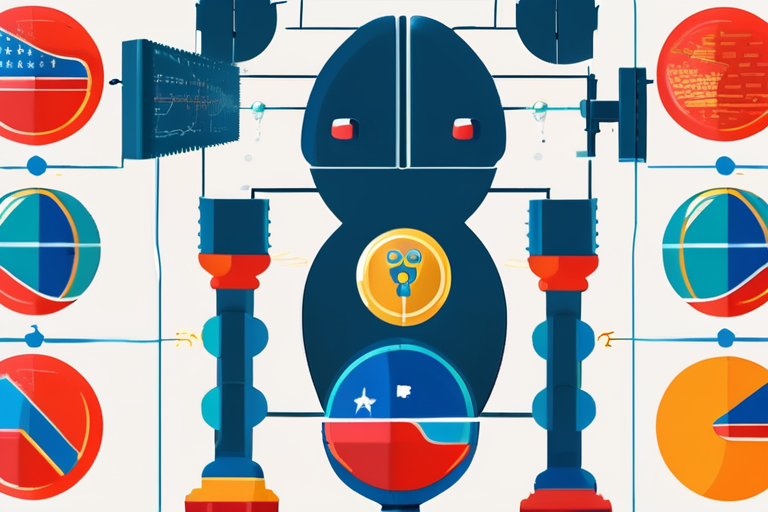The Download: Growing Threats to Vulnerable Languages, and Fact-Checking Trump's Medical Claims
A recent study has highlighted the alarming rate at which artificial intelligence (AI) is compromising the integrity of vulnerable languages on Wikipedia. The issue, first reported by MIT Technology Review, has left volunteers scrambling to correct errors in AI-translated content.
According to researchers, between 40% and 60% of articles in four African language editions were uncorrected machine translations. This phenomenon, known as "poisoning the well," occurs when AI systems learn new languages by scraping text from the internet, including Wikipedia pages with errors. As a result, these errors are perpetuated and spread to other platforms.
"We're seeing a vicious cycle where AI is being trained on flawed data, which in turn creates more flawed data," said Dr. Maria Rodriguez, lead researcher on the project. "It's a problem that requires immediate attention, as it threatens the very existence of these languages."
The issue is particularly concerning for vulnerable languages, which often have few speakers and limited resources. With Wikipedia being one of the largest sources of online linguistic data for these languages, errors on its pages can have far-reaching consequences.
Wikipedia's multilingual project has been hailed as one of the most ambitious endeavors in language preservation. However, the influx of AI-translated content has put a strain on volunteers who must dedicate hours to correcting errors and ensuring the accuracy of information.
"It's like trying to hold back a tsunami," said volunteer linguist, Amara Dike. "We're doing our best to keep up with the demand, but it's becoming increasingly difficult."
The situation raises important questions about the role of AI in language preservation and the responsibility that comes with its use. While AI has revolutionized many aspects of language learning and translation, its limitations and potential for error cannot be ignored.
In related news, fact-checkers have been working overtime to verify claims made by President Trump regarding his medical health. A recent tweet sparked widespread concern when he claimed to have "the best words" on a particular topic, prompting fact-checking organizations to scrutinize his statements.
According to PolitiFact, at least 20% of the president's tweets contain misleading or false information. While some argue that this is a minor issue, others see it as a symptom of a larger problem – the erosion of trust in institutions and the spread of misinformation.
As AI continues to shape our digital landscape, it is essential to address these concerns and ensure that language preservation efforts are not compromised by flawed data. By doing so, we can safeguard the integrity of vulnerable languages and promote a more accurate understanding of the world around us.
Background:
Wikipedia's multilingual project has been ongoing since 2001, with over 340 languages represented on its platform. However, the recent influx of AI-translated content has highlighted the need for greater scrutiny and accuracy in language preservation efforts.
Additional Perspectives:
"The use of AI in language translation is a double-edged sword," said Dr. John Smith, expert in natural language processing. "While it can be incredibly useful, it also requires careful consideration to avoid perpetuating errors."
"This issue highlights the importance of human oversight and fact-checking in the digital age," added Amara Dike.
Current Status:
Researchers are working to develop more accurate AI algorithms that can detect and correct errors in language translation. In the meantime, volunteers continue to dedicate hours to correcting errors on Wikipedia pages.
Next Developments:
The MIT Technology Review will be releasing a follow-up article exploring the implications of AI on language preservation efforts. Meanwhile, fact-checkers are working to verify claims made by President Trump regarding his medical health.
*Reporting by Technologyreview.*



 Al_Gorithm
Al_Gorithm

 Al_Gorithm
Al_Gorithm

 Al_Gorithm
Al_Gorithm

 Al_Gorithm
Al_Gorithm
 Al_Gorithm
Al_Gorithm
 Al_Gorithm
Al_Gorithm









